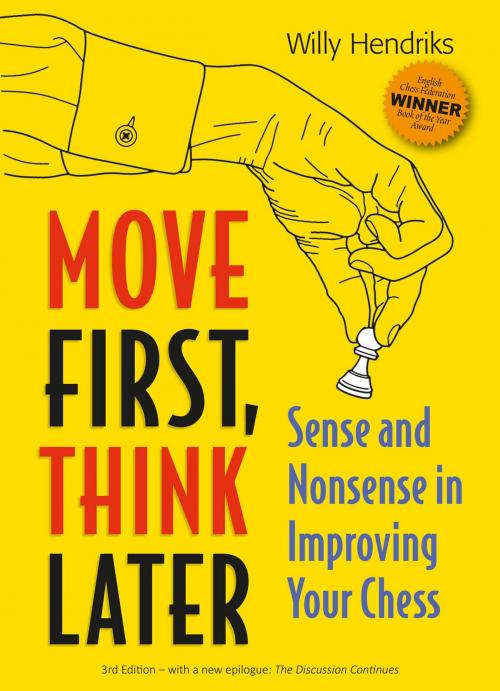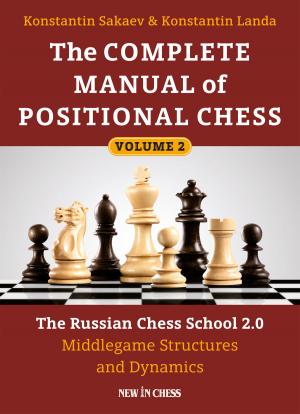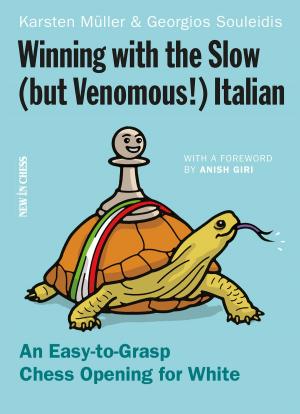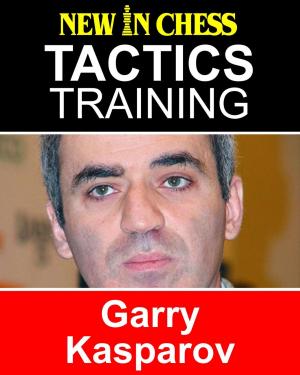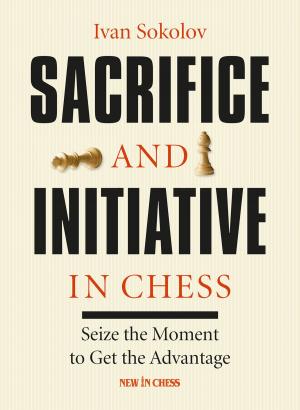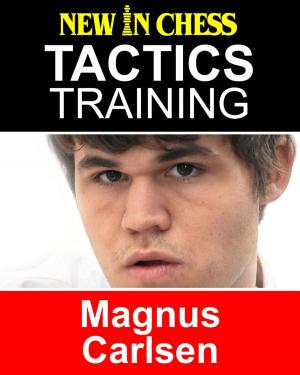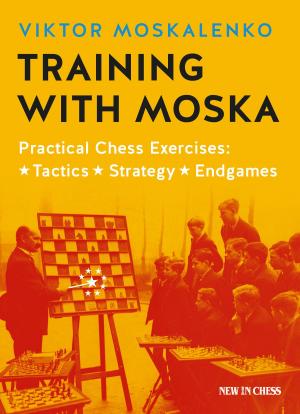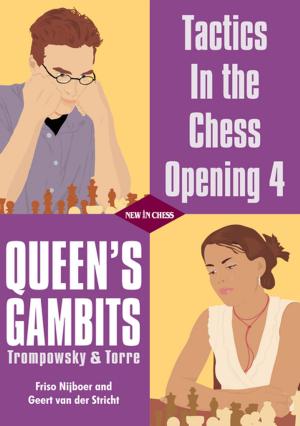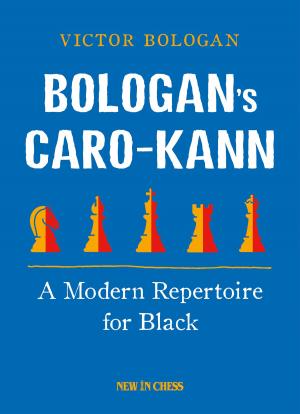Move First, Think Later
Sense and Nonsense in Improving Your Chess
Nonfiction, Entertainment, Games, Chess, Board games| Author: | Willy Hendriks | ISBN: | 9789056915407 |
| Publisher: | New in Chess | Publication: | August 1, 2014 |
| Imprint: | New in Chess | Language: | English |
| Author: | Willy Hendriks |
| ISBN: | 9789056915407 |
| Publisher: | New in Chess |
| Publication: | August 1, 2014 |
| Imprint: | New in Chess |
| Language: | English |
| The chess playing mind does not work like a machine. Selecting a move results from rather chaotic thought processes and is not the logical outcome of applying a rational method. The only problem with that, says International Master Willy Hendriks, is that most books and courses on improving at chess claim exactly the opposite. The dogma of the chess instruction establishment is that if you only take a good look at certain ‘characteristics’ of a position, then good moves will follow more or less automatically. But this is not how it happens. Chess players, weak and strong, don’t first judge the position, then formulate a plan and afterwards look at moves. It all happens at the same time, and pretending that it is otherwise is counterproductive. There is no use in forcing your students to mentally jump through theoretical hoops, according to experienced chess coach Hendriks. This work shows a healthy distrust of accepted methods to get better at chess. It teaches that winning games does not depend on ticking off a to-do list when looking at a position on the board. It presents club and internet chess players with loads of much-needed no-nonsense training material. In this provocative, entertaining and highly instructive book, Hendriks shows how you can travel light on the road to chess improvement! |
| The chess playing mind does not work like a machine. Selecting a move results from rather chaotic thought processes and is not the logical outcome of applying a rational method. The only problem with that, says International Master Willy Hendriks, is that most books and courses on improving at chess claim exactly the opposite. The dogma of the chess instruction establishment is that if you only take a good look at certain ‘characteristics’ of a position, then good moves will follow more or less automatically. But this is not how it happens. Chess players, weak and strong, don’t first judge the position, then formulate a plan and afterwards look at moves. It all happens at the same time, and pretending that it is otherwise is counterproductive. There is no use in forcing your students to mentally jump through theoretical hoops, according to experienced chess coach Hendriks. This work shows a healthy distrust of accepted methods to get better at chess. It teaches that winning games does not depend on ticking off a to-do list when looking at a position on the board. It presents club and internet chess players with loads of much-needed no-nonsense training material. In this provocative, entertaining and highly instructive book, Hendriks shows how you can travel light on the road to chess improvement! |
